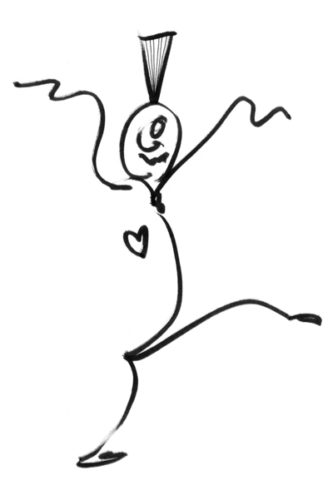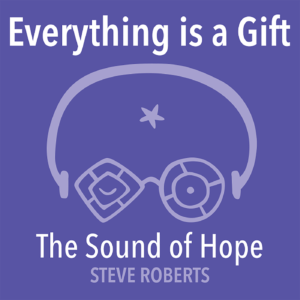Addiction––specifically addiction to beliefs––may be the primary impediment to human evolution. Or, turning it around, the obstacle that yields the greatest rewards. At issue: how we define reality and how ferociously we hold on to that definition. There’s reason to smile.
It may be impossible to exaggerate the devastation caused by the belief that other people and outside circumstances are responsible for our sense of well-being. Or the belief that we have the right to impose our values on others, almost no matter the cost to them. Or the belief that some people are unworthy of kindness, or respect, or even life itself. Seemingly endless are the examples of beliefs we hold with such conviction that harm is one of their byproducts.
The Trump Phenomenon is merely a contemporary American manifestation of the narrowness of mind that has always been part of humankind. While yes, all bets are off as to the final tally of horror Trump’s empty heart and diseased mind may inflict on the world, there’s also a bigger picture that’s beautifully hopeful. And perhaps even more surprising, addicts as we usually think of them (related to alcohol, drugs, food, sex, gambling, etc.), particularly recovering addicts, are a vital part of that picture.
Despite the insane ways we too often treat one another, for centuries we humans have been slowly growing our desire and ability to understand the choices we make, why we make them, and the impact of those choices on ourselves and others. One telling milestone occurred 83 years ago with the founding of Alcoholics Anonymous.
Among the gifts of being an alcoholic, the addiction I know best, is the invitation (some call it the demand) to explore those provocative questions that can help any human understand themselves ever better and, as a result, live a life they’re grateful for rather than one they’re stuck with.
As it happens, these questions also stimulate the awakening that is essential to growing more healthful beliefs––the awakening that takes place, I like to think, at the leading edge of human evolution.
Here are just a few of those questions. They reflect my experience with AA, though the spirit of them could be found in any initiative fostering health, and if we’re lucky, even our grandmother’s treasury of common sense:
-
- What does it mean for me to be helpless? Or fearless? Or honest? Or sane?
- How would I know if my life were unmanageable?
- What is a power greater than myself?
- How does one actually turn one’s will and life over to the care of God as one understands God?
- How do I understand God?
- What is a moral inventory, and how will I know I’m actually engaged in one rather than building a laundry list of reasons to hate myself?
- What does it mean to make amends? What must I think, feel, do?
- What is prayer? Meditation?
- How would I know a spiritual awakening if I experienced it?
Imagine the self-awareness that can ensue from studying the family of inquiry of which these are but a sample?
Perhaps best of all, whatever our answers, they are never more than incomplete. As our learning grows, our responses continually deepen. We become more aware that within every experience is an opportunity to learn something that will strengthen our ability to make choices that lead to happiness.
Only by continually improving our understanding of ourselves can we come to appreciate that ultimately we alone are responsible for where we place our attention and how we define reality. And, that our power to do so is immeasurable.
Those who find this a rewarding undertaking have a certain access to that place within all of us that throbs with a passion to be as fully alive as we can.
What’s special about many recovering alcoholics and their addictive kin is that their passion is fueled in no small measure by the pain of despair and a willingness to arm-wrestle an octopus if that what it takes to be healthy. Their consciousness includes the courage and humility that comes from fighting for their life, often for many years.
That’s why recovering addicts are members of that tribe whose commitment to self-realization in kinship with the entire human family places them on the leading edge of human evolution––doing all they can to have a loving relationship with beliefs.
The power of this tribe is amusingly felt in the words of G.K. Chesterton (1874-1936), the man some call the greatest writer and thinker of the 20th Century:
The reason angels can fly is because they take themselves lightly.





Leave a Reply